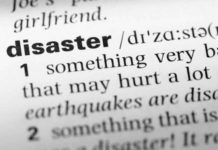Approximately four decades ago, on the 23rd of October in 1983, militants orchestrated a devastating bombing at the United States Marine Corps barracks situated in Beirut, Lebanon. This tragic incident claimed the lives of 241 American servicemen and 58 French military personnel. Notably, an Iranian official purportedly admitted to their nation’s involvement in this assault.
The Middle East Media Research Institute (MEMRI) has uncovered an interview featuring Sayyed Issa Tabatabai, the representative of Iranian Supreme Leader Ali Khamenei in Lebanon. In this interview, Tabatabai acknowledged that he had received directives for carrying out suicide missions against the American forces. Furthermore, he revealed his role in facilitating the necessary resources to execute the attack on the United States Marine Corps unit.
Apart from the assault on the barracks, Iran was purportedly implicated in the bombing of the United States Embassy in Beirut in April 1983. This tragic incident resulted in the loss of 63 lives, including 17 Americans.
Following the public dissemination of Tabatabai’s interview, there were allegations that the Iranian government attempted to remove it from the internet. MEMRI asserted that the interview was removed because no authorized representative had ever acknowledged Iran’s role in orchestrating, organizing, and executing these deadly bombings. The Iranian government has consistently maintained its innocence and denied any involvement in these mass casualties.
The attack on the barracks unfolded when two suicide truck bombers entered the area and detonated their explosives. Among the 241 service members who tragically lost their lives, 220 were members of the United States Marine Corps, three were U.S. Army soldiers, and 18 were part of the U.S. Navy.
Tabatabai disclosed that Iran’s objective was to establish Hezbollah in the Baalbek region of Lebanon, where Iranian Islamic Revolutionary Guards Corps members were stationed. In 2001, families of the numerous Americans who perished pursued legal action against the Iranian government.
A decade and a half later, the United States Supreme Court issued a ruling permitting these families to access nearly $2 billion in frozen Iranian assets. An Iranian-American expert, Banafsheh Zand, informed Fox News Digital that Tabatabai’s admission suggests significant disagreements among the top leadership of the Iranian regime. The extent of these alleged divisions remains uncertain.




